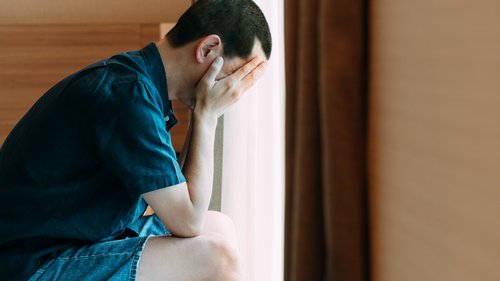Drugs and Bipolar Disorder: Treating Drug Addiction & Bipolar Disorder
Table of Contents
Bipolar disorder is a serious mental illness about 5.7 million Americans have in any year. It produces severe mood swings, with the person shifting between mania (feelings of elation and high energy) and depression (episodes of deep sadness). The relationship between drugs and bipolar disorder is complex, as per the fundamentals below.
These extreme mood episodes come with different behavioral, energy, and sleep patterns than what is typical for the individual. As mood swings can be destructive and horrifying, starting treatment as soon as possible is vital.
Medication for Bipolar Depression
Acute and long-term treatment to manage a diagnosed bipolar disorder may include medications. The prescribed drug depends on the individual’s symptoms and the type of bipolar disorder they have. Commonly prescribed medications for bipolar depression are mood stabilizers, antidepressants, antipsychotics, antidepressant-antipsychotics, and anti-anxiety medicine.
While there is no known cure for bipolar disorder, drugs can help manage the symptoms to provide the sufferer with a better quality of life. These drugs are typically safe when taken at the prescribed dose; they become unsafe though when the dosage exceeds what was prescribed or due to the addictive nature of some drugs.
As every person is unique, it may take time to find the right type of medication and dosage that works best. A combination of medications works well for managing the symptoms, such as Lamictal to cope with bipolar depression and Lithium for bipolar mania.
Also, over time the best medication for an adult may change due to side effects or symptoms becoming intolerable, which is why it is important to keep an eye on these signs.
24 Hour Dual Diagnosis Hotline – Get Help Now!
877-959-7271
Side Effects of Bipolar Medication
A challenge of taking drugs for bipolar disorder is the potential for side effects, which may be severe. Mood stabilizers, for example, taken for relief from severe manic or depressive episodes, can cause nausea, diarrhea, and vomiting. Trembling, weight gain during the first few months, sleepiness, and heightened thirst are other possible side effects.
Unfortunately, some people quit their medications before finding a type and dose that is tolerable for them. It is imperative that the drug is not stopped cold turkey as symptoms can return and drug withdrawal can occur. The results can be serious, disrupting all aspects of the individual’s life, from family to career and finances.
Not everyone has bipolar medication side effects, but when they do occur, a team of professionals can analyze whether the benefits of the drugs outweigh the minor side effects. This is essential to any addiction recovery plan as a person’s ability to manage their mood instability and depressive or manic phases can compromise a co-occurring addiction.
Antipsychotics for Bipolar Disorder
Bipolar medication has side effects, and antipsychotics are no exception. These drugs can associate with dry mouth, sore throat, weight gain, drowsiness, muscle spasms, and trembling.
Recently, new generations of atypical antipsychotics, originally developed for psychosis, are being used by bipolar individuals for mood stabilization and prevention purposes.
A bipolar disorder antipsychotic can have similar efficacy to established treatments, yet fewer extrapyramidal side effects (EPS). Symptoms of EPS include constant, involuntary muscle movements caused by a medication blocking the brain’s dopamine functions.
The Inclusion of Psychotherapy
While medications are a part of acute and long-term treatment for people with bipolar disorder and co-occurring addiction, another part of the solution is psychotherapy. Therapy as part of the treatment plan, along with drugs for bipolar disorder, has potential advantages over medication alone.
The therapy can take place in inpatient or outpatient rehab and can be in a group or one-on-one format. There are many types of therapy, including Cognitive Behavioral Therapy (CBT). The ideal therapy can be decided by experts specializing in bipolar disorders and the individual’s preference for a group or individual setting.
Seeking Treatment for drugs and bipolar disorder
A life with bipolar disorder has its challenges, but learning about the illness can be helpful for getting through it with the right treatment and support. As explained above, prescribed drugs have the potential to manage symptoms and control mood swings, both in the acute phase and long-term. This gives an individual the ability to live a life that is functional both socially and occupationally.
Working with a team of medical professionals at a rehabilitation center can help to minimize any symptoms and side effects of medication for bipolar depression while simultaneously treating an addiction.
As many treatment options are available, it can take time to find a combination of drugs and therapy that works best for you. With that said, the time and energy spent are well worth it. Reach out today to start on your path to recovery.
24 Hour Bipolar Disorder and Substance Abuse Hotline – Get Help Now!
877-959-7271
If you or someone you know needs help with substance abuse the recovery representatives at Find Addiction Rehabs is here to help. Call anytime 7 days a week 24 hours a day.
Brandon is a highly skilled content writer and behavioral health marketer with over a decade of experience. In his own words: in my work with Find Addiction Rehabs, I have dedicated my expertise to a cause close to my heart – substance abuse recovery. Through my passion for the field, I’ve successfully compiled a track record of crafting compelling content that educates, inspires, and supports those on their recovery journeys.


